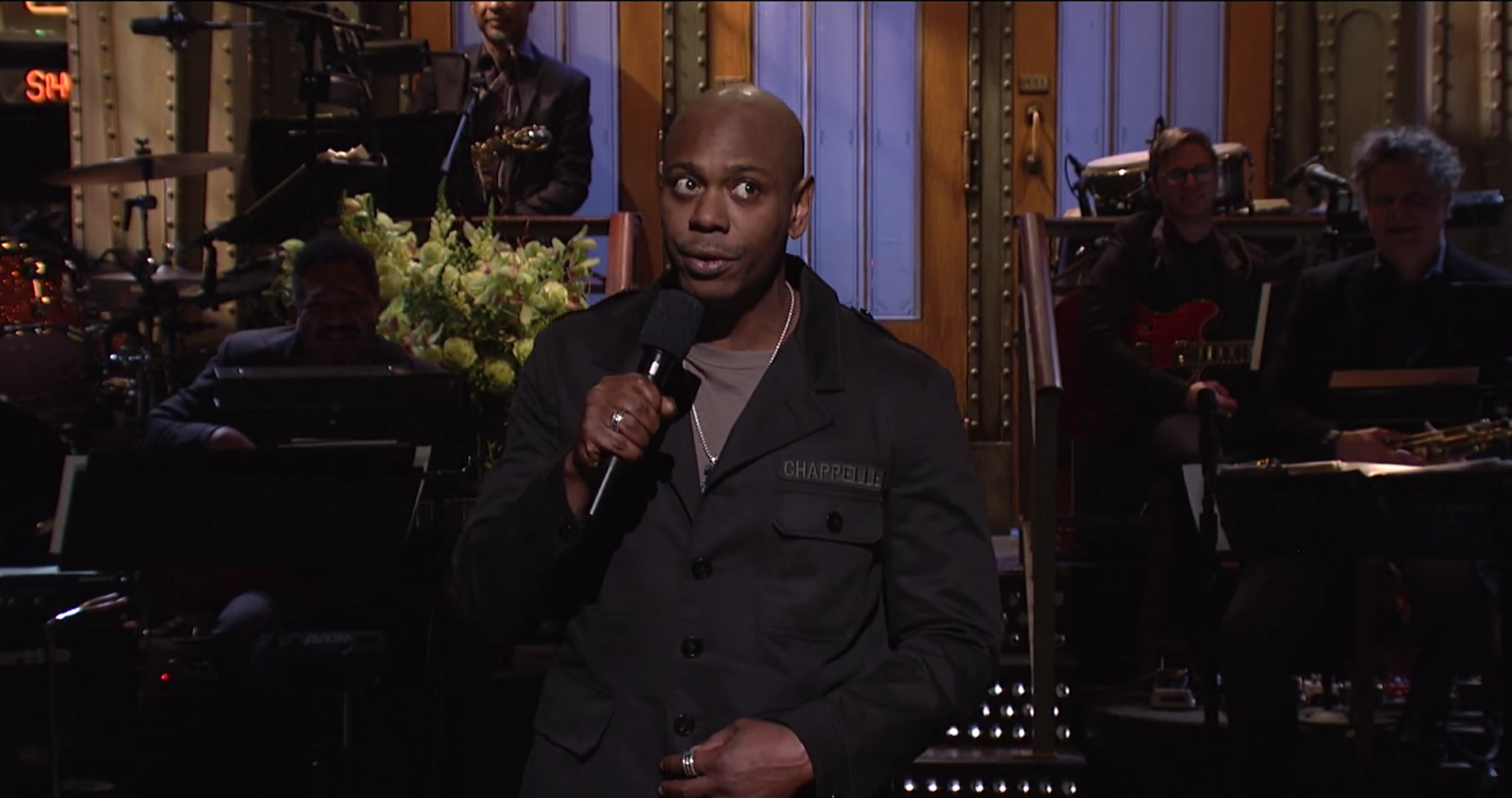Dave Chappelle is making a significant comeback, and everyone seems excited about it. His recent appearance on Saturday Night Live was met with a largely positive response, and the internet is abuzz with excitement about his three new comedy specials coming soon to Netflix. But his comedic style, crafted in a different generation, may not mix with the social climate, and there has already been some backlash to his resurgence.
His monologue, which contained a good amount of vulgar language, was censored by NBC affiliate WRAL in Raleigh, North Carolina, according to Variety. This sparked a divided conversation online as some were outraged over the censorship and others chose to focus on Chappelle using taboo language on a national stage in the first place.
The debate of whether WRAL’s censorship was justified, or even legal, is one that deserves legal deconstruction, but how America has reacted to it is another issue entirely. To understand the contrasting reception the incident has received, we have to examine the current cultural environment.
Many political commentators and bloggers, most notably Bill Maher and Robby Soave, have blamed Trump’s election on the culture of political correctness, calling the polling results the backlash to a country that has gone too far in its attempts to be more inclusive. The movement’s criticisms include PC culture being too broad in its condemnation and being oversensitive.
This intersects with Chappelle’s cursing because a lot of PC culture applies to certain blacklisted words and topics. Again, the reasoning given is to protect the feelings and not cause any unnecessary emotional trauma. The movement stipulates that those in power in a society — in our case, straight white men — dictate what is and isn’t okay to say without properly considering those who society has marginalized. But is this truly the case with comedy?
Comedians such as Ricky Gervais, Joe Rogan and Jerry Seinfeld are often staunch defenders of free speech, especially in the name of making a comedic point. They’ll stand by free speech even if it involves examining a blacklisted topic, like Louis C.K.’s infamous “child molester” bit in his 2015 SNL monologue.
But Louis was making a point about how society looks at forbidden sexuality due to the horrific nature of sex crimes committed to children. We hate these people because of what they do, but we never think of them as being ill and only as being perverted. Granted, advocating for empathy toward child molesters isn’t the easiest position to defend, which is why the joke was met with so much backlash. Yet comedians like Louis and Dave are showing us that the power shouldn’t be in the words themselves, but the message.
Was Chappelle’s language choice crude? Absolutely. Was the language offensive? To some people, it certainly was. But was there a message behind each of the uses? Undoubtedly.
When Chappelle used the word “pussy” he forced us to confront the discomfort of hearing the action that our nation’s president-elect described on the Access Hollywood tape. If we are uncomfortable hearing a comedian using this language, how should we feel about our commander in chief doing the same? When Chappelle used the word “n—–,” he was referencing what President Teddy Roosevelt said about having Booker T. Washington over for dinner and the public criticism he faced for doing this. That moment was perhaps the most powerful of this entire season of SNL to date, but it used a word that some people believe should not be broadcast on national television.
While the societal acceptance and mental stability of any person should never be trivialized, Chappelle shows us why we need to think deeper than barring words and topics from public discourse. Spouting off vulgarities is different than harnessing their power, and Chappelle has a history of doing both.
So will Chapelle’s return be a success? It should be. Shocking this nation with expletives can grab our attention, and we have to trust visionaries like Chappelle with that power. Otherwise, we compromise freedom of speech and the free exchange of ideas, two pillars that uphold our unique democracy.



